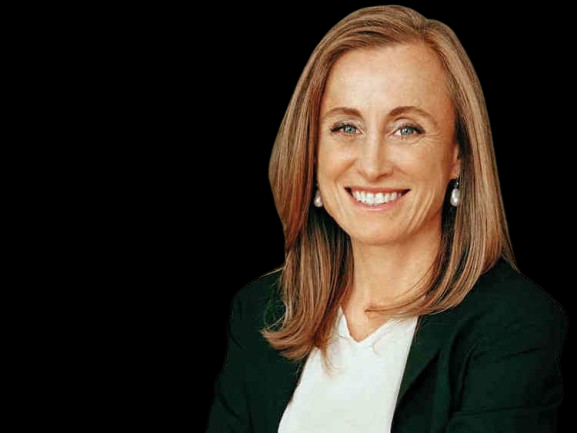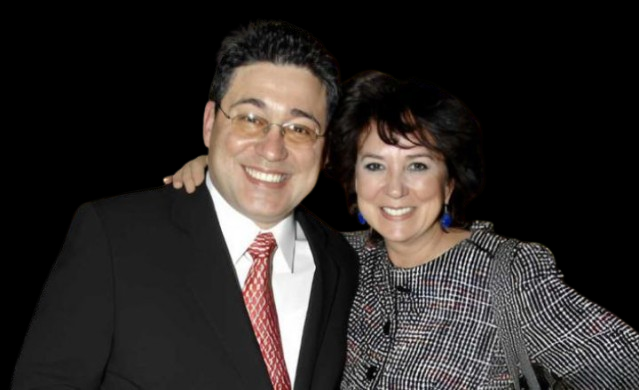When we think about the history of modern technology, names like Steve Jobs often dominate the conversation. But behind every great story, there are usually unsung figures whose choices and circumstances shape the course of history in profound ways. One such figure is Joanne Carole Schieble, the biological mother of Steve Jobs. Her story is layered with personal struggle, societal pressures, and a lasting legacy that continues to ripple through generations.
Early Life and Background
Joanne Carole Schieble was born in 1932 in Green Bay, Wisconsin. Raised in a conservative Catholic family of German descent, her upbringing was deeply rooted in traditional values. Like many women of her era, Joanne was expected to follow a conventional path of marriage and homemaking. However, her ambitions and life journey were far more complex.
She pursued higher education, enrolling at the University of Wisconsin. It was during her studies that she encountered Abdulfattah “John” Jandali, a Syrian political science student who would play a pivotal role in her life story. Their relationship would eventually change the course of technology history.
Love and Conflict
Joanne and Jandali fell in love during college, but their union faced immense cultural resistance. Joanne’s strict Catholic father strongly disapproved of her relationship with a Muslim immigrant. At that time in America, interracial and interfaith relationships carried intense social stigma, making it nearly impossible for Joanne to envision marrying Jandali without family turmoil.
When Joanne discovered she was pregnant in 1954, she faced an incredibly difficult decision. Her family’s opposition and societal expectations left her with little choice. After much deliberation, Joanne chose adoption for her child—a decision that would leave a lasting mark on her life and legacy.
The Adoption of Steve Jobs
On 24 February 1955, Joanne gave birth to a baby boy in San Francisco. She initially wanted her child adopted by a well-educated family, ideally professionals who could provide a strong academic environment. However, fate intervened.
The original adoptive family Joanne had chosen changed their minds at the last moment. The infant was then placed with Paul and Clara Jobs, a working-class couple from Mountain View, California. Despite not fitting Joanne’s academic preference—Paul was a machinist and Clara a homemaker—the couple promised to support their adopted son’s education, a condition Joanne insisted upon.
This baby would grow up to be none other than Steve Jobs, co-founder of Apple Inc.
A Reconnection Years Later
For many years, Joanne had little contact with her son. Steve Jobs grew up believing his adoptive parents were his “real” parents, though he always knew he was adopted. It wasn’t until much later in life that Steve sought out his biological family.
Joanne eventually reconnected with him, though their relationship remained somewhat complicated. Despite their limited closeness, Joanne lived to see the remarkable impact her biological son had on the world. She also became part of a broader family network, as Steve discovered his biological sister, the renowned novelist Mona Simpson, was also Joanne’s daughter from her later marriage.
The Other Side of Joanne’s Legacy
While Joanne is most often remembered as Steve Jobs’ mother, her story extends beyond this role. After her separation from Jandali, she went on to marry George Simpson, with whom she raised Mona Simpson. Joanne’s devotion to family life in her later years contrasted with the heart-wrenching decision she made as a young woman.
Her influence on Mona was significant—Mona often spoke about her mother’s resilience and strength. This dual legacy—raising a successful novelist and giving birth to one of the greatest tech visionaries of all time—cements Joanne’s quiet but remarkable place in history.
The Weight of Choice
It’s impossible to tell Joanne Carole Schieble’s story without acknowledging the societal pressures that shaped her choices. In 1950s America, unwed motherhood carried a deep stigma, often forcing women into silence or secrecy. Joanne’s decision to place her child for adoption was not only an act of survival but also one of hope—that her son would have opportunities she could not provide at the time.
Her insistence on education for her son ultimately proved pivotal. Steve Jobs’ adoptive parents honoured that promise, fostering an environment that encouraged curiosity and exploration, even if his path was unconventional.
Relationship with Abdulfattah Jandali
Joanne and Jandali eventually parted ways, each forging separate lives. Jandali pursued a career in academia and later business, while Joanne embraced family life with George Simpson. Despite their separation, their brief union gave rise to one of the most influential figures of the 20th century.
Interestingly, Jandali himself acknowledged later in life that he had little involvement in Steve’s upbringing and expressed regret over the circumstances. Joanne, on the other hand, chose privacy over publicity, rarely speaking about her connection to Steve.
A Private Life Away from the Spotlight
Unlike Steve Jobs, whose life was public and widely scrutinised, Joanne preferred a quieter existence. She did not seek fame or recognition for her connection to one of the most iconic figures in the technology industry. Instead, she focused on her family and supported her daughter Mona’s literary career.
Her choice to remain out of the spotlight speaks volumes about her character. Joanne valued dignity, family bonds, and resilience over public recognition.
Death and Legacy
Joanne Carole Schieble passed away in 2018 at the age of 86. Her death closed the chapter on a life that, though quiet, shaped the trajectory of modern innovation in an indirect yet consequential way.
Her story is a reminder that history is not only written by those in the spotlight but also by those whose personal choices set the stage for greatness. Joanne’s decision, though made under pressure, allowed Steve Jobs to grow up in an environment that nurtured his genius and eventually transformed the world.
Lessons from Joanne’s Story
Joanne’s life highlights timeless themes:
- Courage in Adversity – Facing societal pressures, she made one of the hardest choices a mother can make.
- The Power of Education – Her insistence on education became a cornerstone of her son’s upbringing.
- Unseen Influence – Even those who remain outside the limelight can leave an extraordinary mark on history.
Her legacy is not only tied to Steve Jobs but also to the broader narrative of women navigating love, tradition, and personal agency in mid-20th-century America.
Conclusion
The untold story of Joanne Carole Schieble is a testament to how one individual’s quiet sacrifices can ripple through time and shape the world in unimaginable ways. While she lived outside the glare of fame, her legacy endures through the remarkable lives of her children and the cultural and technological revolutions they influenced.
In remembering Joanne, we see a woman of resilience, strength, and profound impact—a legacy that remains deeply intertwined with the story of modern innovation.




